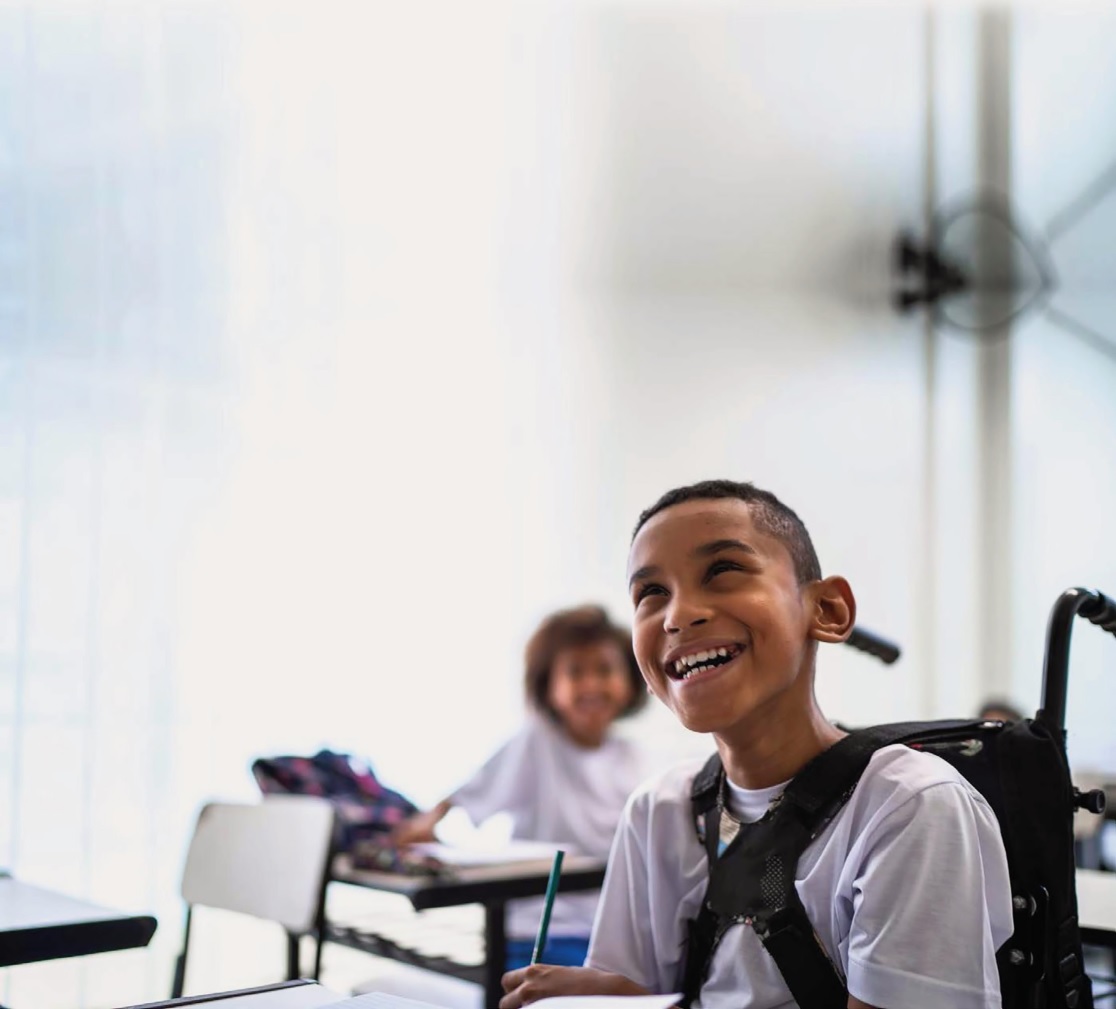DISRUPTING ABLEISM THROUGH EDUCATION

BY ANDREW MEES
More than at any point in America's history, there is an acknowledgment – and an expectation – that anti-bias education be part of a school district's curriculum.
But there is one group typically not included in these critical discussions; individuals with disabilities.
Even in progressive social justice education, the topic of disability is often left on the sidelines, rendering it irrelevant to nondisabled people, perpetuating stigmas, and allowing ableism to go unmentioned. With more states requiring disability education to be appropriately infused into standard curriculums, it is more important than ever to empower teachers with the tools needed to truly educate students – and to deconstruct ableism from the classroom.
Priya Lalvani, a professor of teaching and learning at Montclair State University and co-author of Undoing Ableism: Teaching About Disability in K-12 Classrooms ( amazon.com/Undoing-Ableism-Teaching- Disability-Classrooms/dp/1138545597) is working to bridge this gap by providing a conceptual understanding of ableism, "the persistent devaluing of disability, or viewpoints in which life with a disability is understood as an entirely undesirable existence" and ways to introduce students to anti-ableism content and disability as a natural form of human diversity.
The goal? To empower teachers with ways to recognize and disrupt ableism, and position themselves as agents of change in building inclusive communities.
"There is a considerable gap in the curriculum in schools throughout the K-12 system," said Lalvani. "We have a system in which we prepare teachers to work with students with disabilities and their families, but we do not prepare them to understand and to educate their students about disability history and where this group has been. It would not be OK for a teacher to go before any other group and not have that contextual understanding. Many teachers feel unequipped to tackle this subject in their classrooms, so we are providing a framework that provides the tools needed to have meaningful conversations."
MISSED OPPORTUNITIES: By not acknowledging others who may have disabilities around them, children may learn to silence their natural curiosity about some differences they observe.